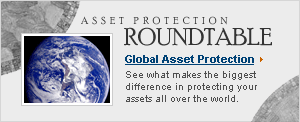The Family Trust
A trust is the right of a person or group of people to legally act for the property to which another person holds legal title. The person who benefits is the beneficiary. Sometimes the beneficiary and the settlor are the same, although it is possible the beneficiary could be a third party.
The term Discretionary Trust is interchangeable with Family Trust. This is a trust in which the settlor (or property holder) has delegated discretion to a trustee (or person with legal authority to act) to decide how much and when income from the trust can be distributed to the beneficiary. A support trust may limit distribution by setting guidelines when it creates an operating agreement, but a Family Trust will generally give almost all discretion to a family member.
This type of trust is often set up to run a family business and hold a family’s interests. A trust works because the settlers believe in the motives of the trustee. Often these trusts are established for asset protection, estate planning and tax advantages.
Common features of these trusts might include the following:
• A family member, for the benefit of other members of the family group, establishes a trust.
• The trustee may be subject to a family trust election, which provides them with certain tax advantages, provided that the trust passes the family control test and makes distributions of trust income only to beneficiaries of the trust who are within the family group.
• The family can assist in protecting the family group's assets from the liabilities of one or more of the family members (for instance, in the event of a family member's bankruptcy or insolvency);
• The trust provides a mechanism to pass family assets to future generations.
• The trust can provide a means of accessing favorable taxation treatment by ensuring all family members use their income tax "tax-free thresholds".
• A trust may help avoid challenges of a will following the death of the settlor.
Trust Deed - The terms and conditions under which a family trust is established and maintained are set out in a deed. The trust is established when the trust's settlor and trustee (or trustees) sign the trust deed, and the settlor hands over the trust property (the "settled sum") to the trustee.
The Settlor - The settlor's function is to give the assets to the trustee to hold for the benefit of the trust's beneficiaries on the terms and conditions set out in the trust deed. The settlor executes the trust deed and then, generally, has no further involvement in the trust.
The Trustee - The trustee is responsible for the trust and its assets. The trustee has broad powers to conduct the trust, and manage its assets. In a family trust, the trustees are usually Mom and Dad (or a company of which Mom and Dad are the shareholders and directors). Their children and any other dependants are usually listed as beneficiaries.
Family Trust Income
One of the key benefits of a family trust is the trustee can distribute income earned by the trust (or from the trust property) in any way they see fit, provided distributions are made to people who qualify as beneficiaries. They do not have to make trust distributions in any particular proportion or in the same proportions as they did in previous years.
A trust does not have to pay income tax on income that is distributed to the beneficiaries, but does have to pay tax on undistributed income. The trustee is free to distribute trust income to as many beneficiaries as possible, and in proportions that take best advantage of those beneficiaries' personal marginal tax rates. The beneficiaries then pay the tax on distributions made to them.
For example, if an adult beneficiary of the trust only receives income from a trust and has the benefit of the tax-free threshold (currently $6,000) for the year, the trustee could distribute part of the family trust's income to this person. The result is that the beneficiary will receive some income but may not have to pay tax if that amount is less than $6,000. If the distribution to the beneficiary exceeds his or her tax-free threshold, the excess amount will be taxed at the beneficiary's personal marginal tax rate.
Distributions received from a trust are not a special form of income, but instead forms part of a beneficiary's assessable income. If the beneficiary receives income from other sources in addition to distributions from the trust, all of the income will be taxed together.
Even if the beneficiary's income does exceed the tax-free threshold for a particular year, the rate of tax applied to the amount of the excess income over the tax-free threshold may be lower than for other beneficiaries because of the total income that these other beneficiaries already receive.
Undistributed income is taxed in the hands of the trustee at the top marginal tax rate of 45% for the 2006/2007 year, giving a strong incentive to family trusts to fully distribute the trust's income before the end of each financial year.
The trustee should also take care when choosing which beneficiaries receive distributions, as penalty tax rates can apply to distributions made to minors. One important aspect of a family trust that must be kept in mind is to whom the distributions are made. In general, money on taxation is only saved if the distributions are made to a family member.
This general information is for educational purposes only. Professional advice should be sought if you are interested in establishing a Family Trust.

ABOUT THE COMPANY
- About Our Firm
- Trustmakers Sitemap
- Mission Statement
- Panama Comfort Zone
- Asset Protection Newsletters
- Asset Protection Trust
- FAMILY TRUST
- Virtual Tour
- Asset Protection Privacy
- Contact Us
- Contributors
- FAQs
- Home Equity Acceleration Plan
- Author News
- Asset Protection Misconceptions
- Asset Protection News
- Asset Protection Trust.02 12 13
- Dynasty Trust The Basics
- Resources
- Asset Protection Affliates
- Asset Protection Facts
- Asset Protection Calm
- Home Protection
- OVERVIEW
- Privacy Policy
- Author Newsletter
- Newsletter
- Asset Protection Trust Services
- Asset Protection Strategy
- Offshore Investing
- Disclaimer
- Rob Lambert
- Panama Canal Zone
- Asset Protection Consultation
- TrustMakers Forms Center
- TrustMakers Site Map

EDUCATION PRODUCTS

Asset Protecion Training
If you are looking for the most important concepts in Asset Protection, this is where to start! If you need to talk intelligently about protecting your net worth or you are a professional this online training program is for you!

Free Asset Protecion Course
Get our Free Online Asset Protection Video Course.
Learn how to protect yourself like the pros!


Asset Protection in a Nutshell
Clear, concise and straight forward, this e-Book will help you make sound decisions with your business and personal assets..

Protecting Assets - 70+ Video Lessons + 3 Ebooks
This e-course will give you straight forward asset protection advice you can implement now. One of the best asset protection courses available! Includes 70+ video lessons, 3 Ebooks, and 6 example legal documents!

Advanced Estate Planner
The key to a solid Asset Protection Plan is the Estate Plan. This downloadable estate organizer will help you keep track of important information about your assets and important legal documents all in one place.
















